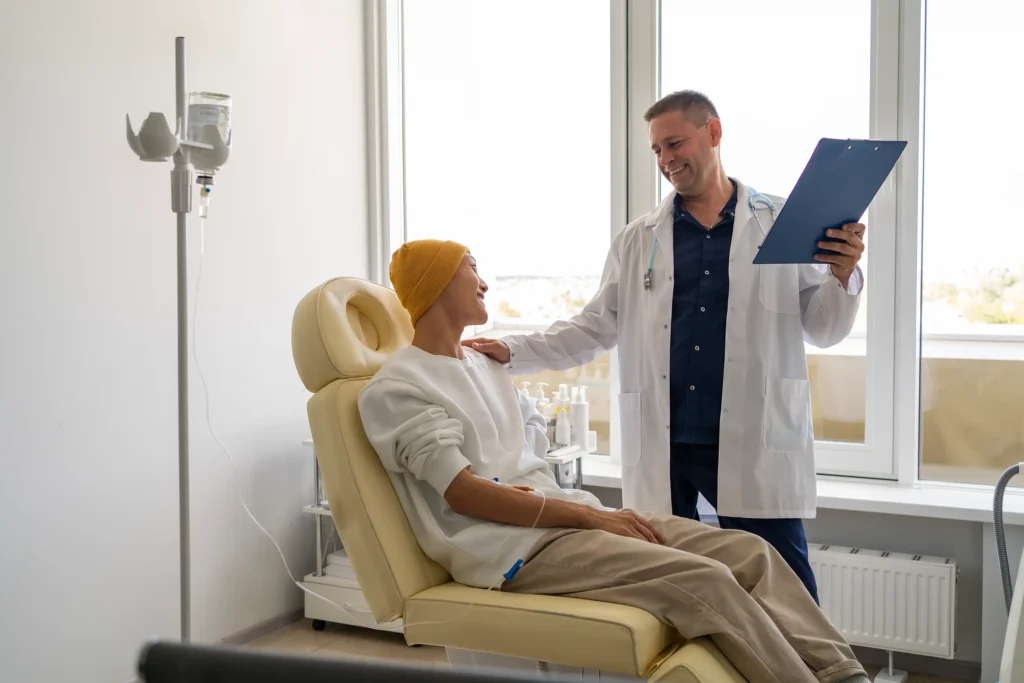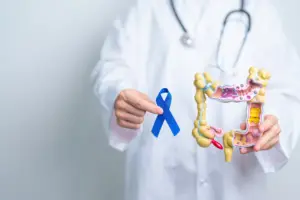
Blood cancer detection: When it comes to cancer, time is not just a number; it’s a lifeline. And for blood cancers like leukaemia, lymphoma, and multiple myeloma, early detection can truly make the difference between life and death.
As a doctor who sees patients with blood cancer every day, I cannot emphasise this enough: the earlier we detect it, the better your chances of survival, successful treatment, and long-term health.
What Is Blood Cancer?
Blood cancers are malignancies that affect the blood, bone marrow, or lymphatic system. The three main types include
- Leukemia: Cancer of the blood and bone marrow
- Lymphoma: Cancer of the lymphatic system (includes Hodgkin and Non-Hodgkin lymphoma)
- Multiple Myeloma: Cancer of plasma cells in the bone marrow
Unlike solid tumors, blood cancers often don’t form lumps or cause pain early on, which is why they’re often missed until they’ve progressed.
Why Early Detection of Blood Cancer Is So Critical
- Better Treatment Outcomes
In the early stages, blood cancer is more responsive to treatment. Patients may need less aggressive therapy and have fewer side effects. - Increased Survival Rates
For many blood cancers, survival rates dramatically improve when detected early. For example, early-stage Hodgkin lymphoma has a survival rate of over 90%. Acute leukemia, when caught early, can go into long-term remission with timely chemotherapy - Fewer Complications
Late-stage blood cancer may cause organ damage, severe anemia, infections, or bone fractures. Early detection prevents many of these serious complications. - Access to Clinical Trials
Early diagnosis allows patients to participate in cutting-edge research or targeted therapies that may not be available in emergency or advanced cases.
Also Read | Study links common energy drink ingredient to blood cancer growth
Blood Cancer Warning Signs You Shouldn’t Ignore
Blood cancer can often mimic common illnesses. Please don’t dismiss these symptoms, especially if they persist:
- Unexplained weight loss
- Constant fatigue or weakness
- Frequent fevers or infections
- Swollen lymph nodes (neck, underarms, groin)
- Easy bruising or bleeding
- Bone or joint pain
- Night sweats
- Pale skin or frequent nosebleeds
If you or someone you love experiences these symptoms for more than a couple of weeks, see a doctor and request blood tests.
How Blood Cancer Is Diagnosed
Early screening tools include:
- Complete Blood Count (CBC)
- Peripheral blood smear
- Bone marrow biopsy
- Imaging tests (CT, PET-CT for lymphomas)
- Immunophenotyping and genetic testing
These may sound technical, but they are simple and highly effective in confirming or ruling out a diagnosis.
Blood cancer doesn’t always give a warning. But your body often does. Listening to it and acting early could save your life or the life of someone close to you. We now have more advanced treatments and higher survival rates than ever before, but early detection remains our most powerful weapon.
Disclaimer: This article is for informational purposes only and does not replace professional medical advice. If you have persistent symptoms or concerns, consult a certified haematologist or hemato-oncologist immediately.





